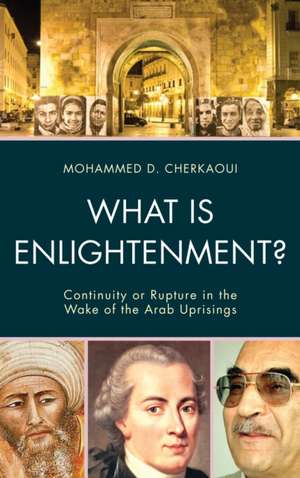What Is Enlightenment?
Autor Mohammed D. Cherkaouien Limba Engleză Hardback – iun 2016
Preț: 829.53 lei
Preț vechi: 1136.34 lei
-27% Nou
Puncte Express: 1244
Preț estimativ în valută:
158.84€ • 163.67$ • 133.30£
158.84€ • 163.67$ • 133.30£
Carte tipărită la comandă
Livrare economică 21 februarie-07 martie
Preluare comenzi: 021 569.72.76
Specificații
ISBN-13: 9780739193679
ISBN-10: 0739193678
Pagini: 404
Dimensiuni: 159 x 238 x 35 mm
Greutate: 0.77 kg
Editura: Rowman & Littlefield
ISBN-10: 0739193678
Pagini: 404
Dimensiuni: 159 x 238 x 35 mm
Greutate: 0.77 kg
Editura: Rowman & Littlefield
